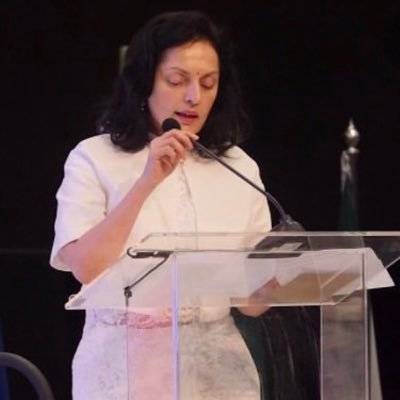India’s Permanent Representative to the UN Ambassador Ruchira Kamboj on Tuesday said the practice of placing holds and blocks on listing requests without giving any justification must end…reports Asian Lite News
Taking a dig at China, India has told a UN Security Council meeting chaired by Beijing that it was “most regrettable” that genuine and evidence-based proposals to blacklist some of the world’s most notorious terrorists are being placed on hold, saying such “double standards” are rendering credibility of the Council’s sanctions regime at an “all-time low”.
In June, China, a permanent member of the UN and a close ally of Pakistan, had put a hold, at the last moment, on a joint proposal by India and the US to list Pakistan-based terrorist Abdul Rehman Makki under the 1267 Al Qaeda Sanctions Committee of the UN Security Council.
India’s Permanent Representative to the UN Ambassador Ruchira Kamboj on Tuesday said the practice of placing holds and blocks on listing requests without giving any justification must end.
“An effective functioning of the Sanctions Committees requires them to become more transparent, accountable and objective. The practice of placing holds and blocks on listing requests without giving any justification must end,” she said.
Speaking at the UN Security Council meeting on ‘Threats to international peace and security caused by terrorist acts’ chaired by permanent-member and Council President for the month of China, Ms Kamboj said, “It is most regrettable that genuine and evidence-based listing proposals pertaining to some of the most notorious terrorists in the world are being placed on hold.”
“Double standards and continuing politicisation have rendered the credibility of the Sanctions Regime at an all-time low. We do hope that all members of the UNSC can pronounce together in one voice, sooner than later, when it comes to this collective fight against international terrorism,” she said.
Abdul Rehman Makki is a US-designated terrorist and brother-in-law of Lashkar-e-Taiba head and 26/11 Mumbai terror attack mastermind Hafiz Saeed.
It was learnt that New Delhi and Washington had put a joint proposal to designate Abdul Rehman Makki as a global terrorist under the 1267 ISIS and Al Qaeda Sanctions Committee of the UN Security Council but Beijing placed a hold on this proposal at the last minute.
Earlier also, China, an all-weather friend of Islamabad, had placed holds and blocks on bids by India and its allies to list Pakistan-based terrorists.
In May 2019, India had won a huge diplomatic win at the UN when the global body designated Pakistan-based Jaish-e-Mohammed chief Masood Azhar as a “global terrorist”, a decade after New Delhi had first approached the world body on the issue.
A veto-wielding permanent member of the UN Security Council, China was the sole hold-out in the 15-nation body on the bid to blacklist Masood Azhar, blocking attempts by placing a “technical hold”. All decisions of the committee are taken through consensus.
Stalemate in India-China talks
While India pushed for a comprehensive disengagement, China’s refusal to discuss Demchok and Depsang had stalled all further progress in talks
The stalemate in the talks between India and China to end the standoff in Eastern Ladakh continues with no breakthrough in the 16th round of Corps Commander talks held last month.
In the interim, the two sides agreed to maintain the “security and stability” on the ground in the Western Sector along the Line of Actual Control (LAC), a joint statement issued had said.
“The two sides agreed to stay in close contact and maintain dialogue through military and diplomatic channels and work out a mutually acceptable resolution of the remaining issues at the earliest,” the statement said. The talks were held at Chushul-Moldo border meeting point on the Indian side and lasted for over 12 hours.
Building on the progress made at the last meeting on March 11, 2022, the two sides continued discussions for the resolution of the relevant issues along the LAC in the Western Sector in a “constructive and forward looking manner.”
Stating that they had a frank and in-depth exchange of views in this regard, in keeping with the guidance provided by the State leaders to work for the resolution of the remaining issues at the earliest, the statement added: “The two sides reaffirmed that the resolution of remaining issues would help in restoration of peace and tranquility along the LAC in the Western Sector and enable progress in bilateral relations.”
While an agreement for disengagement from Patrolling Point-15 was close by in the last few rounds of talks, China’s refusal to discuss other friction areas, Demchok and Depsang, maintaining that they are not part of the current stand-off, has stalled any progress. India has been insisting on comprehensive disengagement and de-escalation to end the ongoing standoff in eastern Ladakh.
Since the stand-off began in May 2020, the two sides have so far held 15 rounds of senior military commander talks with disengagement undertaken from both sides of Pangong Tso in February 2021, and from PP 17 in the Gogra-Hot Springs area in August, in addition to Galwan in 2020 after the violent clash. The 15th round of Corps Commander talks took place on March 11, 2022.
ALSO READ-Why Beijing must link One-China Policy with One-India policy

